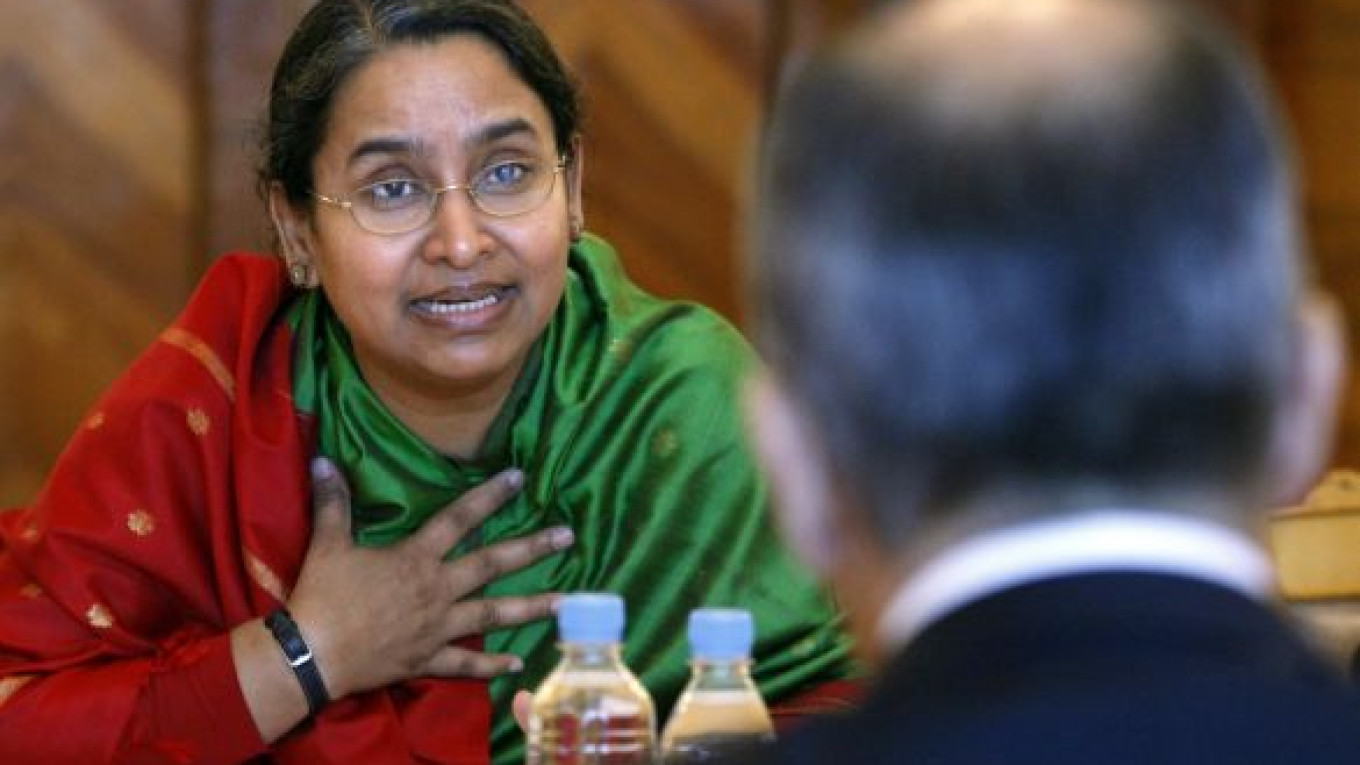DHAKA, Bangladesh — Bangladesh said Saturday that Russia had formally agreed to assist the energy-starved South Asian country in building nuclear power plants.
"An agreement on cooperation for the peaceful use of nuclear energy to meet the growing power demand in the country was signed between the two countries in Moscow on Friday," a Foreign Ministry spokesman said.
Bangladeshi Foreign Minister Dipu Moni and her Russian counterpart, Sergei Lavrov, witnessed the signing of the agreement between atomic energy corporation Rosatom and the Bangladesh Atomic Energy Commission.
Bangladesh had requested that Russian authorities assist in establishing two nuclear reactors with a capacity of 1,000 megawatts each by 2015, the spokesman said.
The plants are expected to cost up to $2 billion and begin generating electricity by 2014, said officials of the Power, Energy and Mineral Resources Ministry.
Bangladesh has plans to set up the nuclear power plants at Rooppur, 200 kilometers northwest of the capital, Dhaka, to help deal with growing power shortages.
Growing concern over power shortages led Bangladesh to consider nuclear energy as natural gas reserves are fast depleting and most coal fields remain unexploited.
Bangladesh now has nearly 60 power plants, mostly decades old and all fueled by gas or coal.
A power official said the country of 150 million experiences daily power shortfalls of 2,000 megawatts. Peak-hour demand stands at about 5,500 megawatts.
According to the agreement, Rosatom will help Bangladesh AEC in designing, constructing and operating nuclear power and research reactors.
The company will also supply nuclear fuel, take back spent nuclear fuel, manage nuclear waste and train personnel for operation and maintenance of the plant.
A Message from The Moscow Times:
Dear readers,
We are facing unprecedented challenges. Russia's Prosecutor General's Office has designated The Moscow Times as an "undesirable" organization, criminalizing our work and putting our staff at risk of prosecution. This follows our earlier unjust labeling as a "foreign agent."
These actions are direct attempts to silence independent journalism in Russia. The authorities claim our work "discredits the decisions of the Russian leadership." We see things differently: we strive to provide accurate, unbiased reporting on Russia.
We, the journalists of The Moscow Times, refuse to be silenced. But to continue our work, we need your help.
Your support, no matter how small, makes a world of difference. If you can, please support us monthly starting from just $2. It's quick to set up, and every contribution makes a significant impact.
By supporting The Moscow Times, you're defending open, independent journalism in the face of repression. Thank you for standing with us.
Remind me later.


